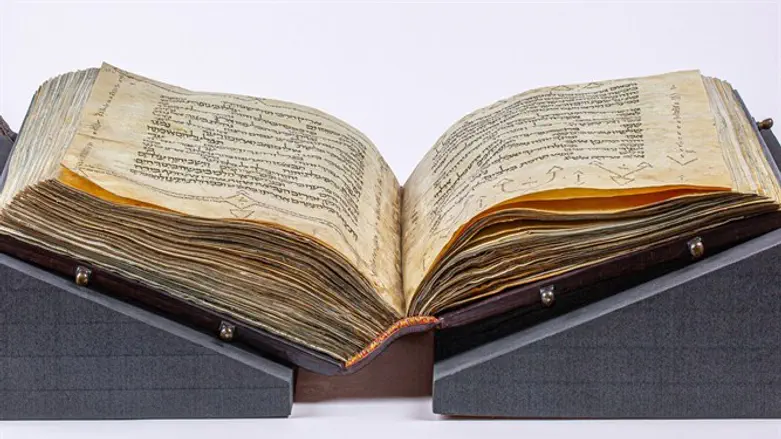
Leilui Nishmat Avi Mori HaRav Baruch ben Moshe Avraham
The concept of “Endings” stirs deep emotions that at times include dread ,for so many people. On the one hand the concept of endings imply a journey reaching completion and story achieving its purpose. Yet on the other hand the concept carries with it a sense of Finality and a curtailment of what could have been.That touches the most basal fear of our mortal existence. In the biblical text that “concept of endings” is best described by the word SOF.
It is better to go to a house of mourning than to go to a house of feasting, for that is the end (SOF) of every man, and the living shall lay it to his heart.(Ecclesiastes 7:2)
The end (SOF)of the matter, everything having been heard, fear G-d and keep His commandments, for this is the entire man.(ibid 12:13)
Yet in the Torah portion of Mikeitz we encounter another word for ending – KEITZ
The Torah portion begins with the words :"It came to pass at the end (MiKeitz) of two full years, that Pharaoh was dreaming, and behold, he was standing by the Nile.(Genesis 41:1)
The use of this word thought it appears throughout Tanach stands out here in a dramatic fashion. The Torah could have simply stated “after two years" or "after these things ". The use of the word Keitz is clearly not happenstance.
This is so because the word Keitz does not only mean an ending. The word does not simply denote an "end' but rather a "critical and defining " End. The defining part of it is that it also defines a critical and defining Beginning of something new.
"It came to pass at the end (MiKeitz) of four hundred and thirty years, and it came to pass in that very day, that all the legions of Hashem went out of the land of Egypt."(Exodus 12:41)
“And it came to pass at the end (MiKeitz) of forty days and forty nights, that Hashem gave me two stone tablets, the tablets of the covenant.(Deuteronomy 9:11)
Of every finite thing I have seen the end ( Keitz); Your commandments are very broad. (Psalm 119:96)
Joseph entry into Egypt was not really about the envy of his brothers or their plots. Joseph's time in the prison was not simply a result his time in the house of Potipahr.
All this events were threads of a tapestry meant to create the stage for the next development of Hashem’s plan.
The whole story of Joseph that begins with a dream comes to a new climax again with dreams. "It came to pass at the end(MiKeitz) of two full years, that Pharaoh was dreaming, and behold, he was standing by the Nile."( Genesis 41:1).
In seach for understanding we read; “So Pharaoh sent and called Joseph, and they rushed him from the dungeon, and he shaved and changed his clothes, and he then came to Pharaoh."
And so begins the laying of the groundwork of the first exile of the Jewish people . All his in in fulfillment of the covenant Hashem made with Avraham;
And He said to Abram, "You shall surely know that your seed will be strangers in a land that is not theirs, and they will enslave them and oppress them, for four hundred years. And also the nation that they will serve will I judge, and afterwards they will go forth with great possessions.(Genesis 15: 13-14)
Joseph understood that all that he has gone through has prepared him and his people for all they will yet go through.
Yet there is more. There is something else learnt from the word Keitz. Pharoah at the beginning of the Torah portion has two dreams. After each one he awoke with a start ."then Pharaoh awoke (VaYikatz).The word implies an abrupt ending, an unexpected and even dramatic change.That too is an element of these ‘life changing endings and beginnings”. They will and perhaps must occur when we least expect it.
The emerging people of Israel after Joseph would now begin their ongoing spiritual growth through their own struggles with exile, endings and new beginnings.
Yet all that will come to its own Keitz as well
For there shall be another vision for the appointed time; and He shall speak of the end ( KEITZ) , and it shall not fail; though it tarry, wait for it, for it shall surely come; it shall not delay.(Havakuk 2:3). It will come quickly, abruptly and unexpectedly. That is the nature of such destiny changing endings.
It is not happenstance, then, that the portion of Mikeitz is so linked with the festival of Chanukah, A festival of seeing light in the midst of darkness and of yearning for endings that will bring new beginnings.
This is in fact the refrain in the classical Hanukah song we all sing after the lighting of the Menorah lights
Maoz Tzur Yeshuati- O mighty stronghold of my salvation,
In the final stanza we sing;
“Reveal Your Arm of Holiness and hasten the End ( KEITZ) for the Redemption”–We ask the Master of the Universe to reveal His active involvement of Holiness in the world in order to hasten the End ( KEITZ) of Darkness and the beginning of Eternal light.
Lerefuat Kol HaPtzuim ve Hacholim
Lerefuat Yehudit bat Golda Yocheved and Yehudit bat Chaya Esther
